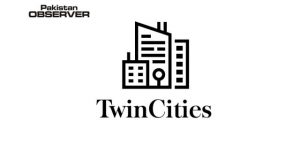The British Council and the Higher Education Commission (HEC) have pledged to support ‘All Pakistan Women Universities Consortium’ in a meeting held on Saturday.
The consortium was founded in October 2021 by three founding members including Fatima Jinnah Women University (FJWU), Rawalpindi, Lahore College Women University and Government College Women University Sialkot. The central idea of this consortium is to strengthen the collaboration among women universities to achieve excellence in higher education of women to enhance the women development and empowerment in Pakistan.
In the meeting, ten more women universities have joined the consortium including Begum Nusrat Bhutto Women University, Sukkur, Jinnah University for Women, Karachi, Government College for Women University, Faisalabad, Government Sadiq College Women University, Bahawalpur, University of Home Economics Lahore, Shaheed Benazir Bhutto Women University, Peshawar, Women University Mardan, Women University Swabi, Khyber Pakhtuknkhwa, Sardar Bahadur Khan Women University, Quetta and Women University of Azad Jammu and Kashmir Bagh.
The Vice Chancellors from these universities signed the consortium document and pledged to support women higher education in Pakistan by sharing resources, finding grounds of mutual interests and future planning for women higher education.
On the occasion, Dr. Nishat Riaz, Director Education, British Council Pakistan lauded the idea of women consortium and assured complete support of the British Council in multiple forms such as technical, knowledge sharing, goodwill and financial incentives. She emphasized that women must be involved in the decision making process at the policy level to ensure women empowerment.
She also emphasized on the need of creating a conducive environment where faculty and student retention can be ensured. She suggested multidimensional strategies for talent identification, youth motivation, career counseling and contemporary skill orientations for the young Pakistani women to unleash their full potential.
Dr. Bushra Mirza, VC, Lahore College Women University, who is also one of the founding members, provided a framework and suggested holding annual consortium meetings with partners to find mechanisms of documenting efforts.
Dr. Shaista Sohail, Executive Director, HEC suggested that established universities from the stable regions can support universities where women retention is an issue such as universities in Balochistan are facing such issues in few areas.
Being one of the founding members, Dr. Rukhsana Kausar, Government College Women University Sialkot, assured her full support to the cause. Dr. Saima Hamid, VC, FJWU played a significant role in bringing all stakeholders together. During the meeting she highlighted the progress of the consortium in a short span of one year. Under her leadership, a capacity building project with founding universities was recently completed.
In this project, the team of researchers from consortium member universities worked with both women as well as general universities to support all the women belonging to the field of higher education in Pakistan.
In addition to this project, a series of webinars and seminars were also arranged in different member and non-member universities. Dr. Saima highlighted the power of academic networking and said that gender equality can be resolved through partnerships and collaborations and in this way we can contribute toward the two SDGS such as ‘Gender Equality’ and ‘Partnerships for the Goals’ and can become a significant support to the government’s drive for achieving these SDGs.










